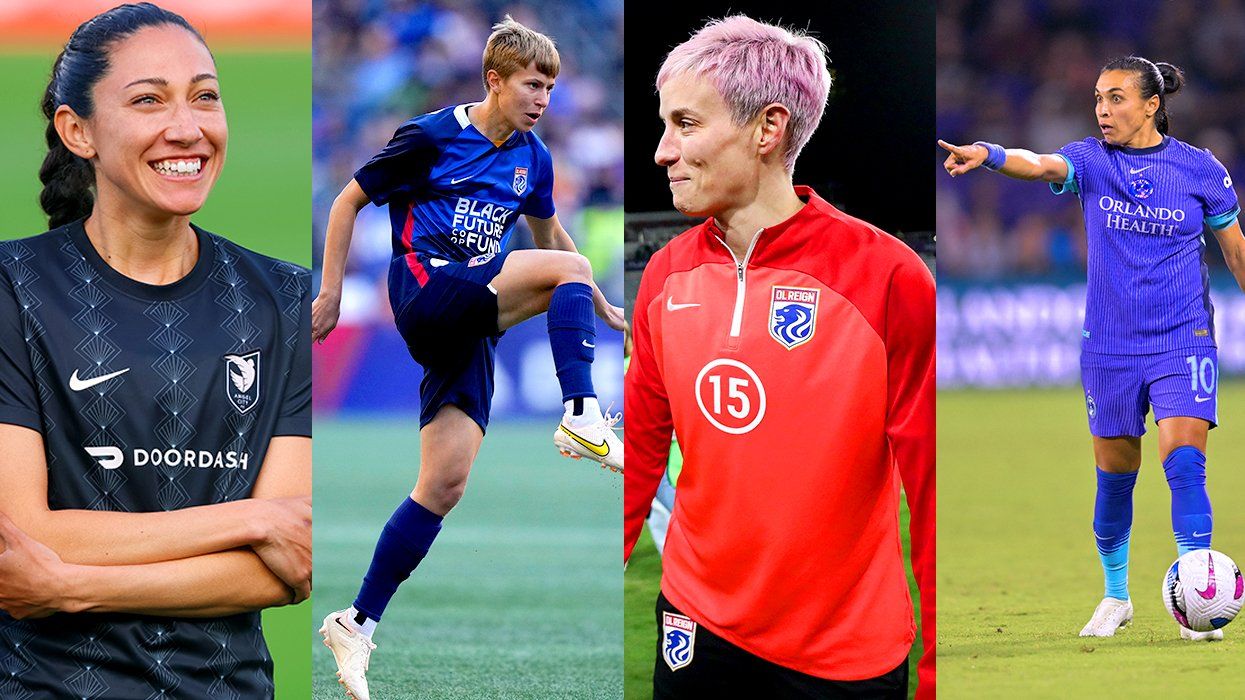At age 28, French actress Léa Seydoux has worked with some of the most renowned directors on the planet including Woody Allen, Catherine Breillat, Christophe Honoré, and Quentin Tarantino, but it’s her work with French/Tunisian l'enfant terrible Abdellatif Kechiche that’s garnered her the most praise and attention. The striking actress who’s appeared in mainstream movies including Midnight in Paris and Mission Impossible: Ghost Protocol, sheered off her tresses and dyed her short hair a cool blue to play Emma, a painter with a penchant for philosophy, who falls for a highly sensual younger woman in Kechiche’s epic love story Blue is the Warmest Color, based on the graphic novel by Julia Maroh. But if Blue sounds familiar -- at this point -- it’s likely due to the media furor over its intensely realistic lesbian sex scenes that shocked audiences at Cannes and subsequently earned the film an NC-17 rating for its release in the United States on Oct. 25.
Earlier this year Blue made a splash at Cannes, landing the director and the film’s stars Seydoux and 19-year-old Adèle Exarchopoulos the Palme D’or. The well-deserved win made Seydoux and Exarchopoulos the second and third women in the festival’s history to earn the prize (Jane Campion was the first). But for all of the praise that’s been heaped on the trio for delivering what could easily become the sweeping love story of this generation (the film spans a decade), press surrounding the film has focused on controversy – the explicit nature of the sex scenes that last for minutes on end and the actresses’ uneasy relationship with their director. Just prior to the Toronto International Film Festival last week Seydoux and Kechiche traded barbs over the film’s often-grueling five-month production, that included a full 10 days to shoot the sex scenes, Seydoux told The Daily Beast.
In that interview earlier this month, Seydoux and Exarchopoulos emphatically said they would not work with Kechiche again despite the singularly raw performances he elicited from them. Kechiche fired back, particularly at Seydoux, who’s worked tirelessly in film for the past seven years, essentially calling her privileged and ungrateful for the opportunity with Blue (Her prominent family owns Pathé, the world-renowned film equipment and production company that was founded in 1896).
All controversy aside, Blue is a deeply moving love story for the ages and a game changer for its portrayal of a lesbian love affair that’s sure to earn Seydoux and Exarchopoulos a place in the annals of LGBT film history, and possibly Oscar nominations (that’s if American audiences can warm to Blue).
Seydoux spoke from Toronto with SheWired about the difficulty in working with Kechiche, her enduring friendship with Exarchopoulos, her lesbian fans, and the opportunity to play to her masculine strengths.
SheWired: How did you arrive at the role of Emma?
Léa Seydoux: I just knew that I wanted to do the adaptation of this comic book. Before the meeting with [director Abdellatif Kechiche] I had to read the comic book and then I saw that it was a love story between two girls. I was very attracted to this character. I really wanted to play Emma because I have always felt that I have a masculine part. I've always felt also that I am several women. I wanted to explore this part of myself, the masculine part. As an actress I’ve always been inspired more by actors than actresses. For example, I'm more inspired by Marlon Brando than Audrey Hepburn.
I think your desire to portray your masculine energy really comes through in the film. There is just something very authentic about your approach to Emma. And it is very Brando in some ways.
Thank you. The director wanted me to watch some films with Brando and James Dean.
Your costar Adele (Exarchopoulos) is a relative newcomer. You’ve certainly worked so much in your short time in the business. Do you feel as though you became a mentor to her, especially considering the intensity of the shoot?
Yeah, yeah, I was a mentor in the film and out of the film (laughs).
A different kind of mentor in the film…
Yeah, it's true. We have this very strong relationship now. We're very close and I think maybe I'm like her sister. We really helped each other. It was a collaboration between the two of us. I think this film is also about our relationship…
Your friendship…
It's true that it’s a friendship, but there's love between us. You can say there's love.
Seydoux and Exarchopoulos at Cannes.
The film is beautiful and hard to watch in a way that is incredibly thoughtful. At its core, it’s an epic love story. Do you worry that the film could be eclipsed by the controversy surrounding production?
I don’t know, I hope no. Maybe you can tell?
I think in time people will forget the controversy and the film will be revered on its own merit.
Yeah, yeah, of course. And you know, sometimes, I mean it happens sometimes to work, to be in a tough situation. The whole process, the fabrication was difficult. But it makes a beautiful film and we are very proud of the film. I’m very proud that I played Emma. I think it’s one of my favorite roles that I’ve done so far.
Your résumé is so impressive, and you’ve worked with some of the greatest directors on the planet in films like The Last Mistress, La Belle Personne, Midnight in Paris, Inglourious Basterds. What was it about Abdell’s style that was so different from all of the other auteurs you’ve worked with?
Abdell, what I love about his films and why I’m kind of fascinated by his films, is because it’s so realistic, there’s something about realism. It’s something that I love as an actress and as a spectator. I love when there’s something a little like a documentary, when it’s like almost documentary.
Like scripted cinéma vérité.
Yeah, I really love that. For example, I did some films with Ursula Meier, for example a film called Sister, and even like Grand Central--it’s a film that I just did right after Blue Is The Warmest Color--there’s something about [showing] reality and a certain reality. I love that. I’ve found I’m engaged as actress with those kinds of films.
Going back to the controversy for a moment, you were quoted as saying you wouldn’t work with Abdell again after the grueling shoot, and he came back very harsh, almost accusing you of being ungrateful. We know from history -- for instance, Alfred Hitchcock was notoriously manipulative with Tippi Hedren on The Birds--that some directors exploit actors to elicit a desired performance.
The thing is that it’s the way he makes his films. So that’s just the fabrication. It’s very difficult. But as a director and as a person I would never say something bad. I don’t want to spoil his image. It’s just that it was horrible -- the shooting was horrible. And yes, of course, as an actress it’s my job, and sometimes you can feel manipulated but in a way that goes beyond the movie, it goes beyond the character. It’s something that touches you deeply, the human being, and you can feel not respected and that this is not work anymore.
But I’m not a victim; I wanted to do this film. It was hard. People say how it’s beautiful, this film, it’s so realistic. We were able to do that because it’s about the emotions that you see in the film and it’s only 10% of what we’ve done, at most. We shot so many scenes that are not in the film and they were much more violent. You don’t see that, the violence that was in the shooting. But, I love his work and I’m very proud of the film.
Speaking of being proud of the film, I believe it will go down in history as one of the greatest lesbian-themed films in the history of cinema, and also as one of the greatest love stories of all time, straight or gay. It’s just an epic story. Have you considered that you’ve also played a role in LGBT pop culture history by making this bold, honest film?
I think this film will change things. I’m sure. Even in France, that’s why I think it got the Palme d’Or, because it’s really like a change. It’s very modern in the way that the story is shown. You know, it’s not a lesbian story — it’s just a love story. It’s just about love. I think that’s the big thing about it. Now, you should be able to love who you want to love -- anyone. It’s just a story about passion. It’s between two women -- it could be two men, or one man and a woman. That’s not the subject of the film. That’s why it’s very modern. There’s no judgment.
Have you heard from fans who are lesbians regarding the film and how it has affected them?
Yeah. Some of my friends were so touched. Even gay men were so touched by the story. Women that I know that are lesbians loved it. For them, it’s such a big thing because, as you said, it’s the first time we see a story like that. It’s a revolution, I think, for cinema and for lesbians, the gay community, even for men.
You and Adèle became the second and third women to ever win the Palme d’Or at Cannes. That was historical. How did that feel?
It felt great. We’re so proud and we are so thankful because it’s unique and the story is based on our relationship. So, the fact that we won the Palme, its’ also because I feel that, on this film, that we’re not only actors. It’s like we created, in a way, the story because there were a lot of improvisations and things like that, so it’s really based on Adéle and I. So, to have this recognition, is just amazing.
Seydoux with the Palme.
You mentioned the violence that was not shown in the film, but there was one very brutal fight scene depicted in the movie that was just visceral. How did you get to that raw place?
The fight scene at the end? I was very scared because I knew that it was going to be hard. And with Abdellatif, I knew that he would push us to the extreme. So we were very scared to shoot that scene because we knew that we were about to suffer. We were scared and at the same time we were already in the state of mind. So I used the tension I had and I played with it.
Did you have to take a break after this film?
No, the problem is that I had three films in a row just after this one, but it’s okay.
If I were eligible to vote I would nominate both you and Adèle for Oscars. Do you think that could become a reality?
I don’t know how the American audience will react. That would be great and a step forward to have a nomination for this film because of its subject and the explicit scenes. That would be great, but we don’t know. We have to wait.
I’m going to cross my fingers for you.
Thank you, that’s very kind.






































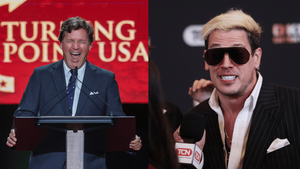
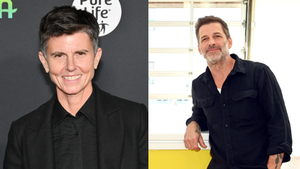






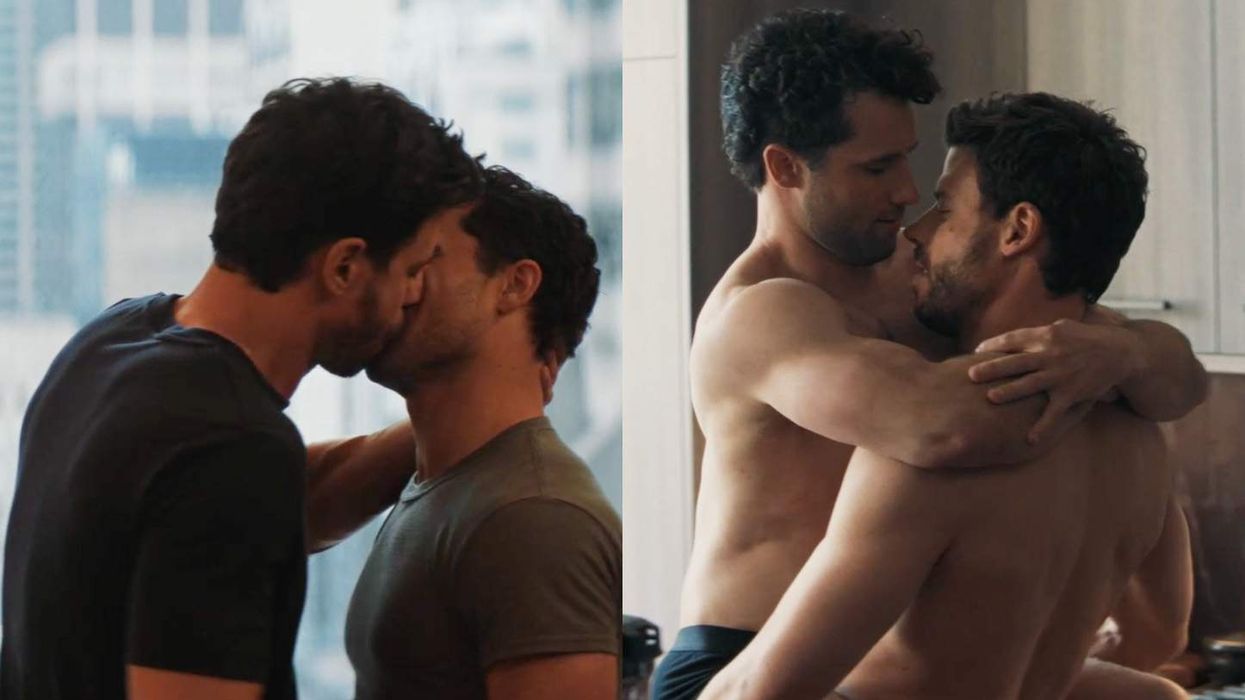


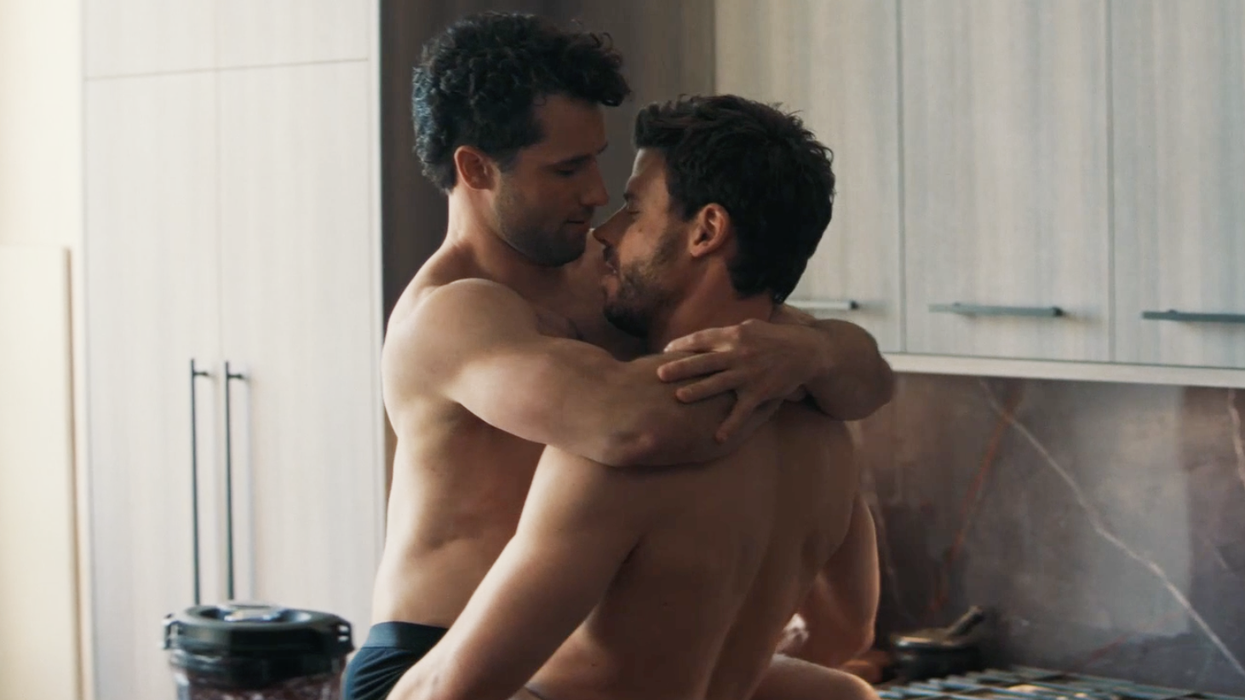
































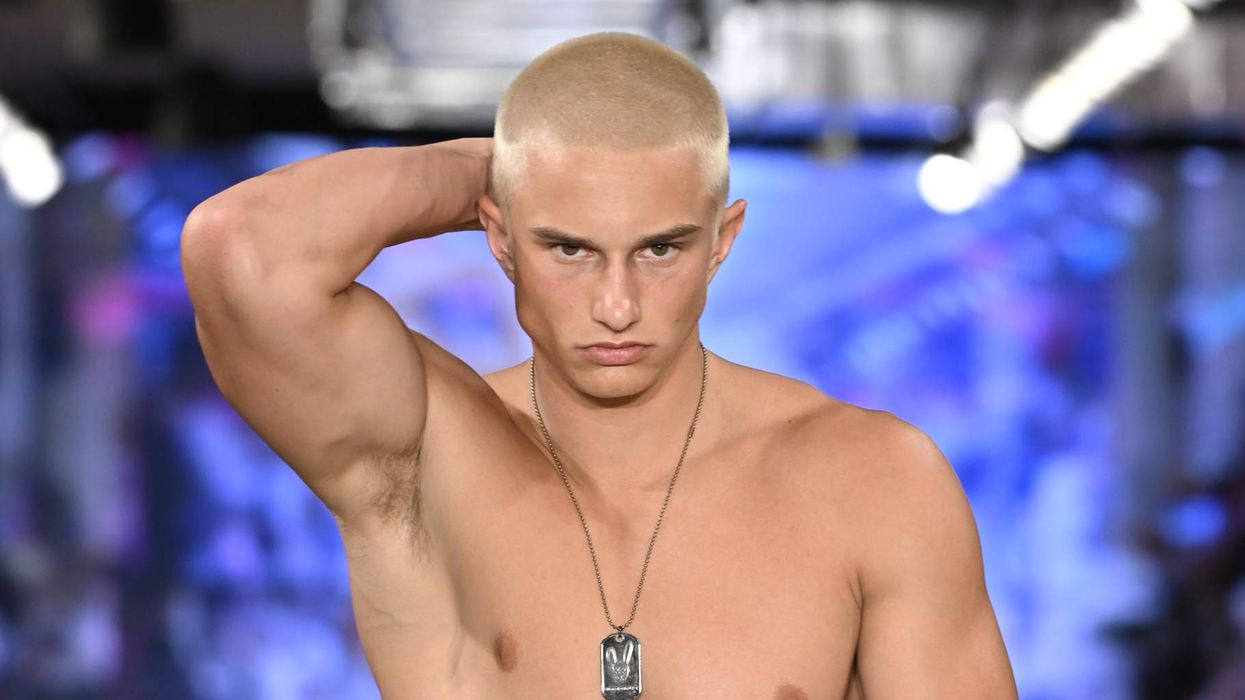
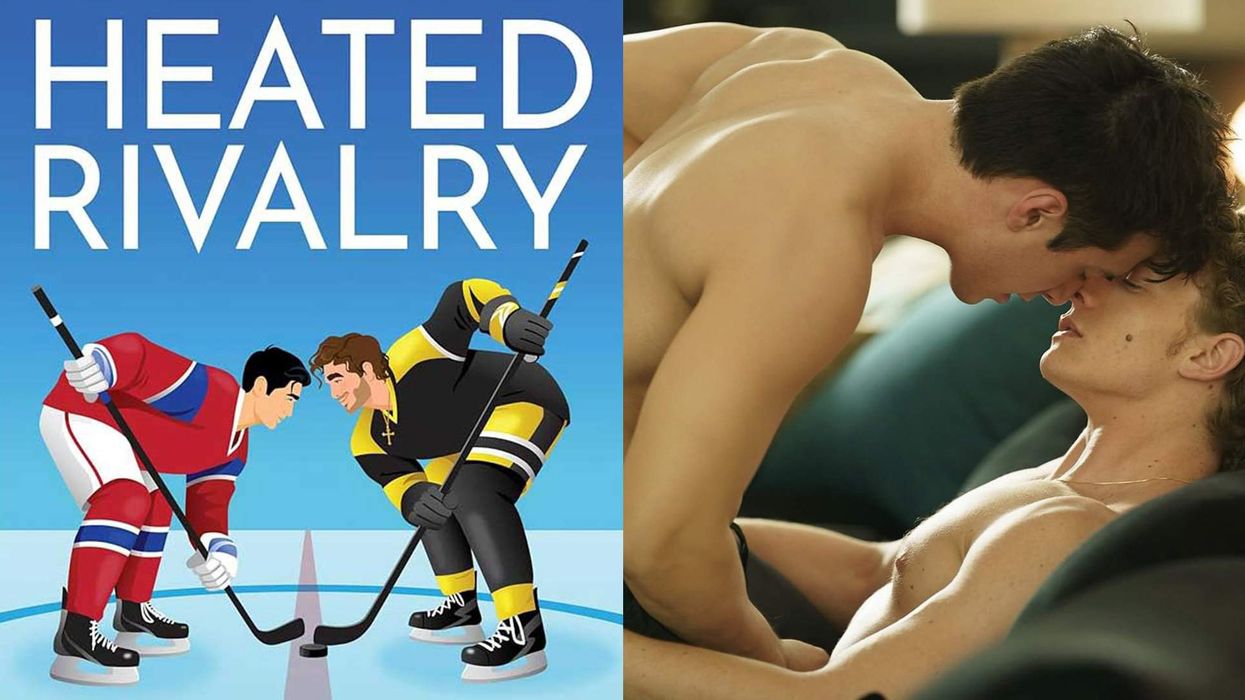



 Cindy Ord/Getty Images
Cindy Ord/Getty Images
























